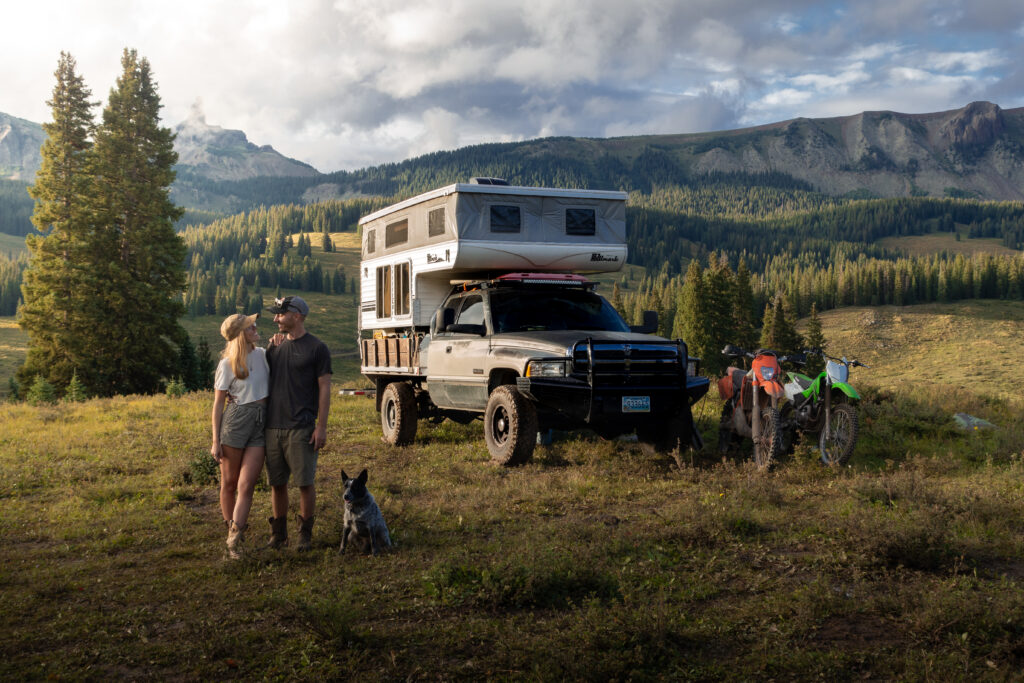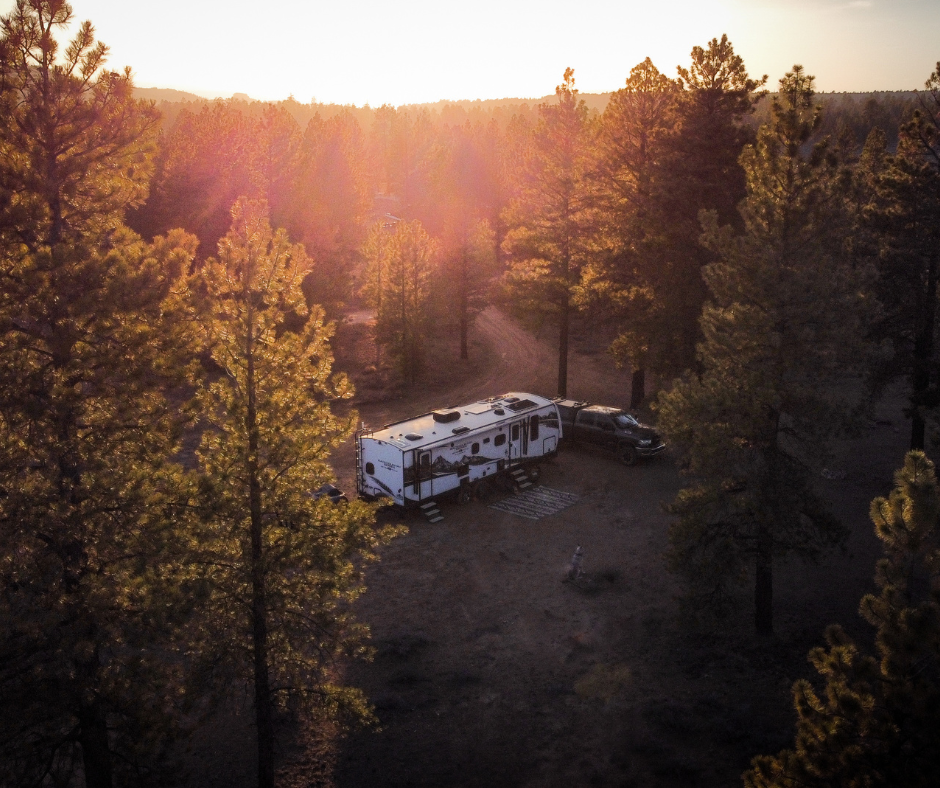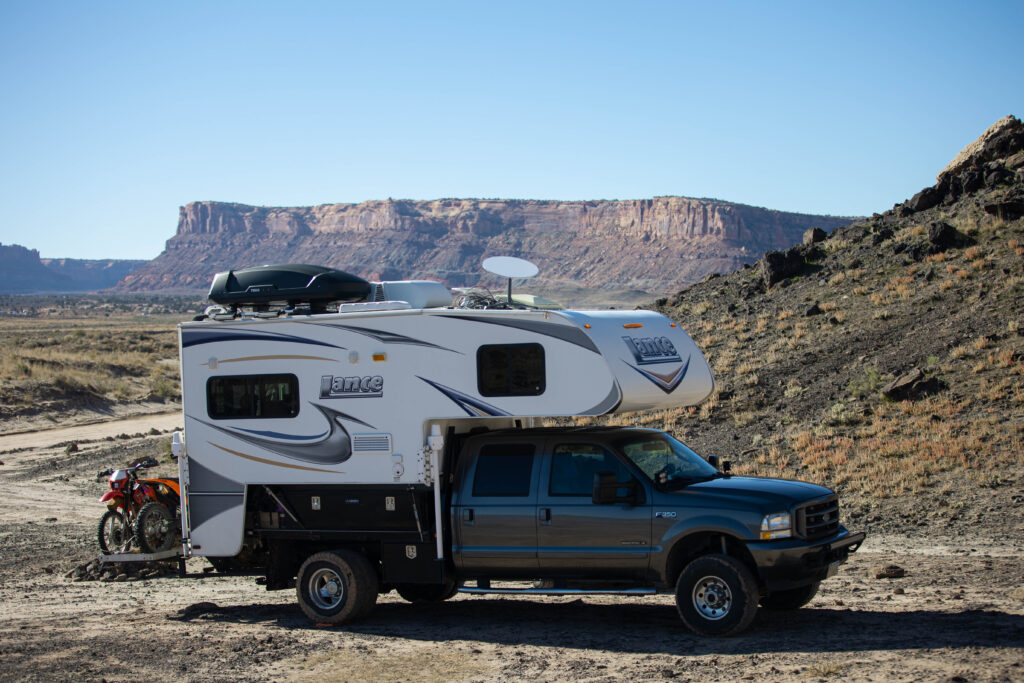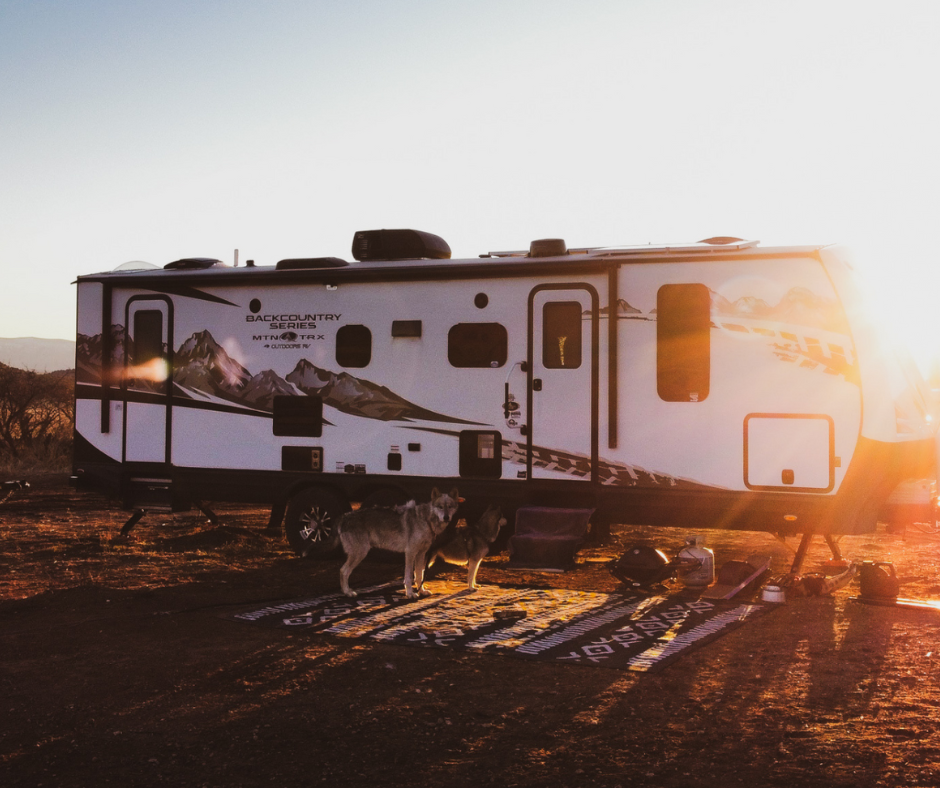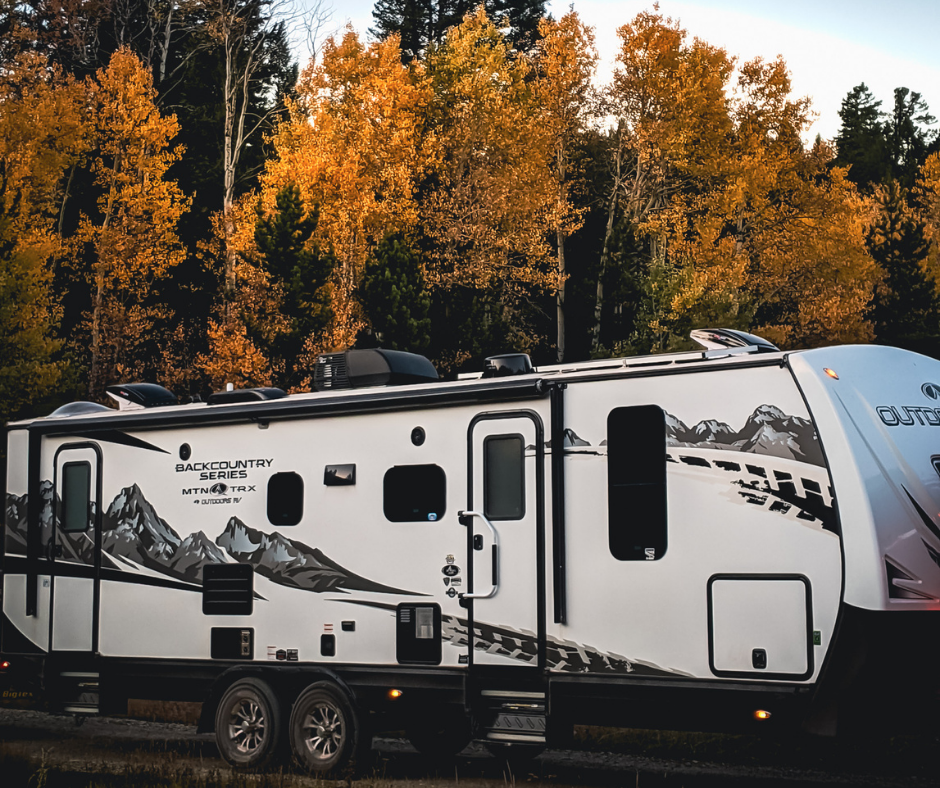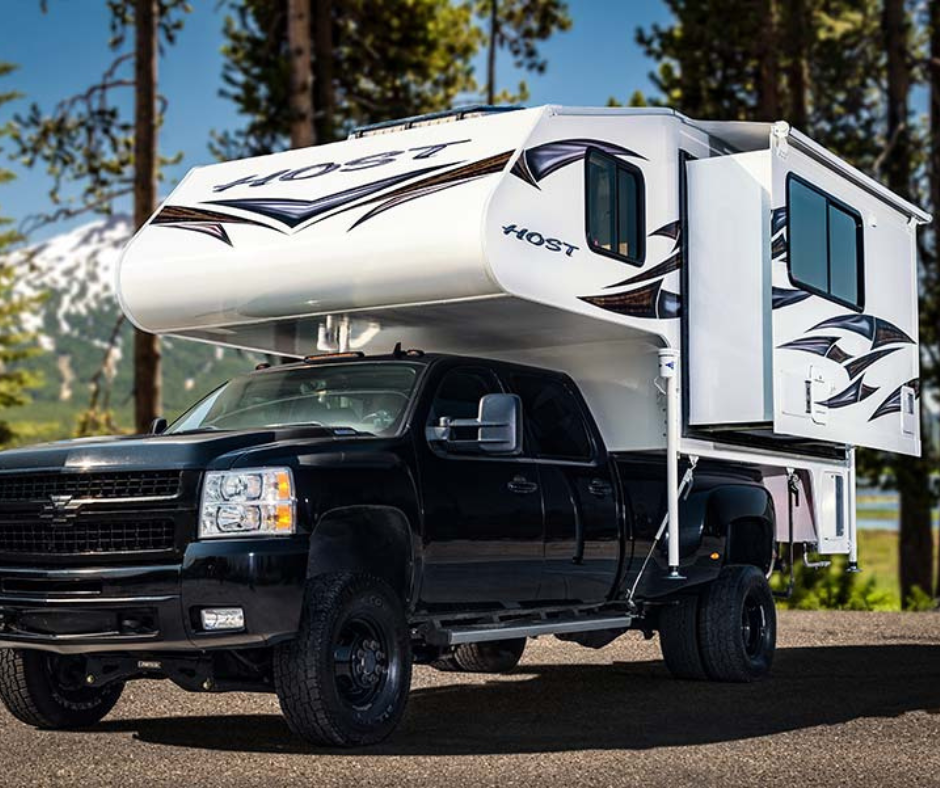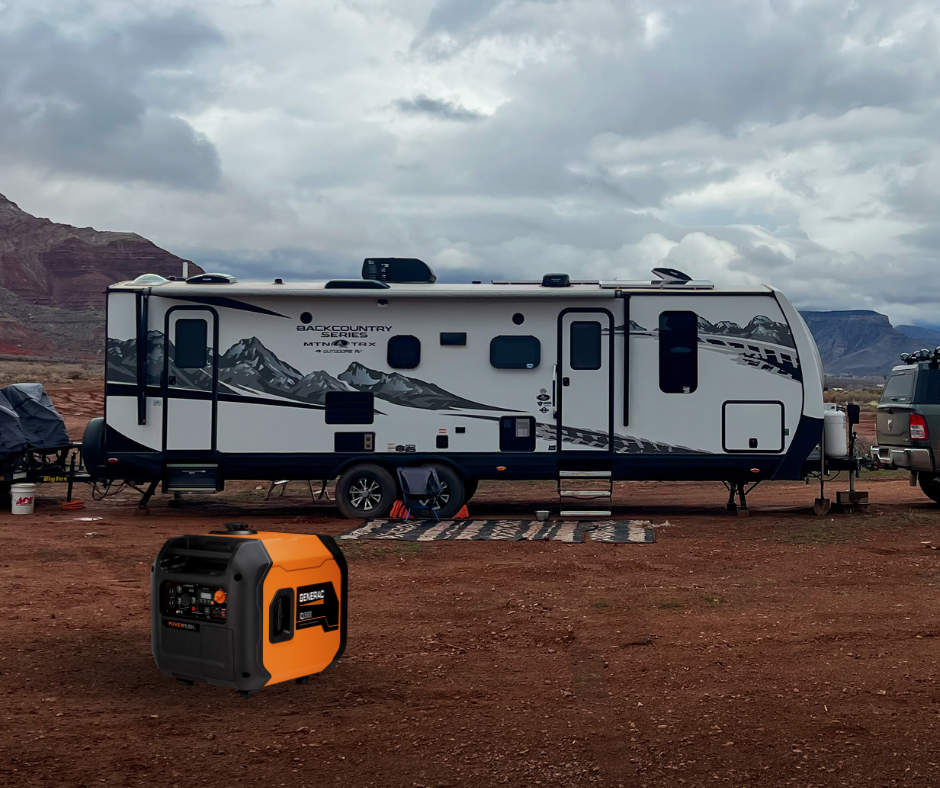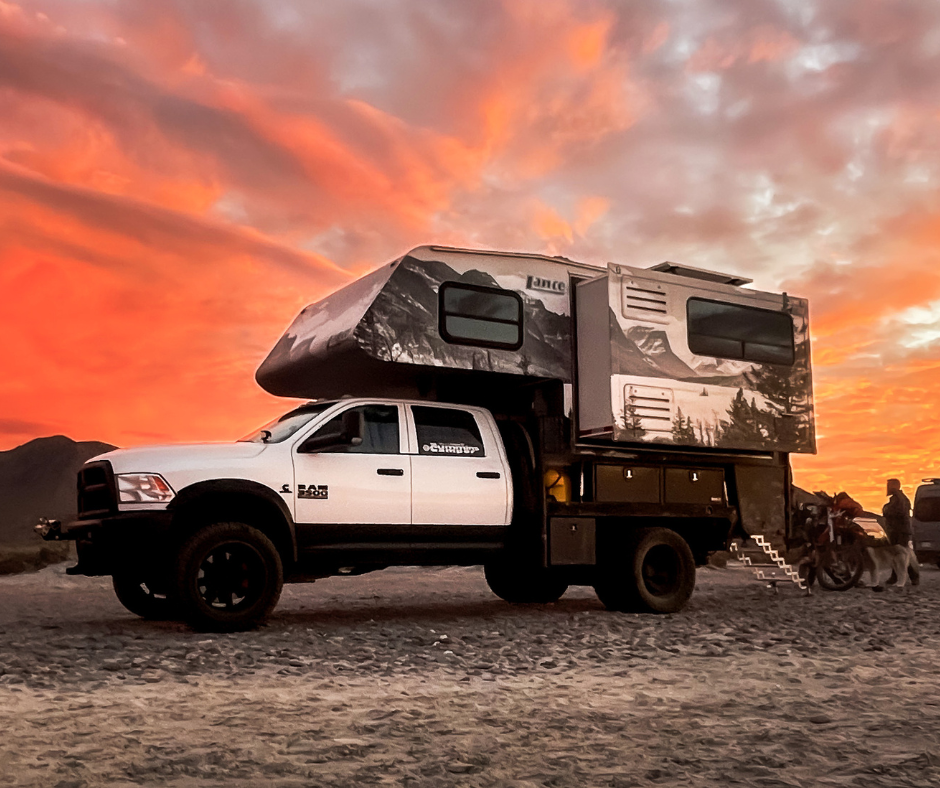How Full-Time RVers Get Internet While Traveling
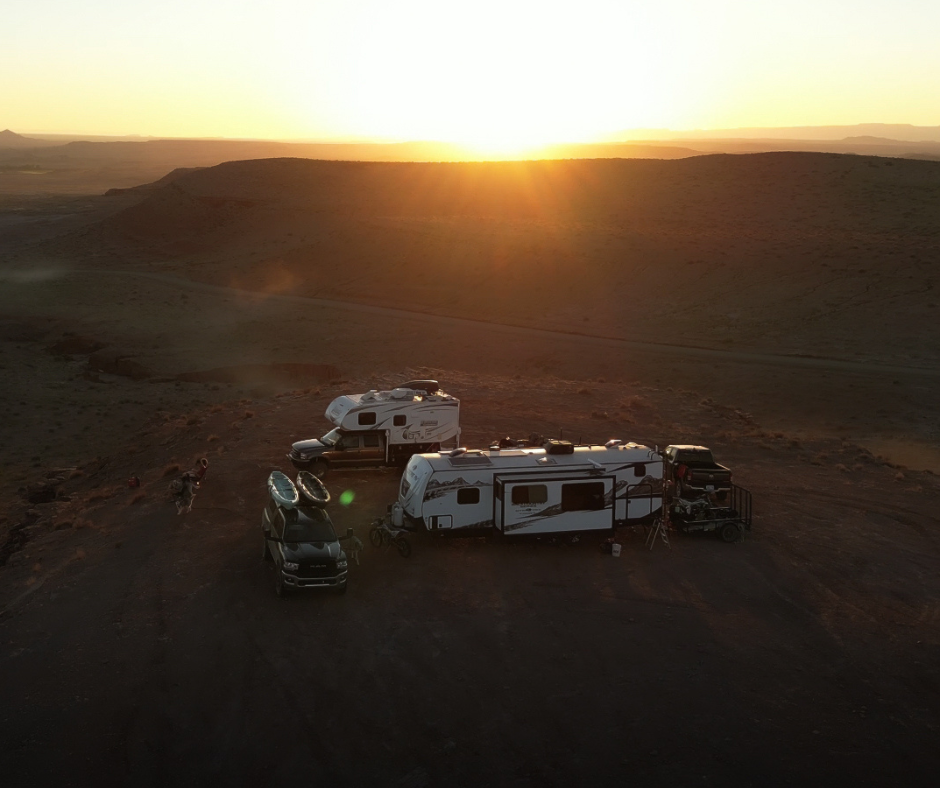
Table of Contents
ToggleInternet Options for Full-Time RVers
Getting internet while living in an RV full-time has been one of the most challenging issues we have faced while traveling. For the past 4 years, we’ve tried various products and plans in order to get a reliable connection no matter where our travels take us.
In our first year of travel, we started off using a portable hotspot device from Verizon called the Jetpack, which allowed us to access the internet wherever our cellular service had coverage. This worked for a while, but it was limited and slow.
We then moved on to a cell booster from the company Cel-Fi, which provided better speeds and more reliable service at a reasonable upfront cost, and we could use it with both our cellular network provider (Verizon) and portable hotspot device (Jetpack). However, the signal was still pretty weak where there was limited network coverage.
We constantly relied on reviews from apps like Campendium to find campsites with reliable cell service. Despite our best efforts, it seemed like we were never quite sure if there would be reception at every stop of our journey.
And let’s be real, who wants to plan their travels around internet access?
This year, we’ve discovered the ultimate solution for the most dependable internet as a full-time RVer. In this blog post, we’ll discuss the many ways nomads get internet in an RV. Plus stay tuned, because we’re revealing our top-rated solution for securing reliable internet as a nomad.
How Do Full-Time Rvers Get Internet?
We tried various solutions over the years including Wi-Fi hotspot devices, cellular data plans, and satellite. Here’s a list of ways full-time RVers get internet on the road, each of which we will discuss in more detail:
- Mobile Hotspot via Cellular Data
- Portable Hotspot Devices
- Cell Boosters
- RV Park Wifi (yikes)
- Wifi Boosters
- Satellite Internet
Mobile Hotspot via Cellular Data
One of the most common ways for RVers to get internet is through their cell phone service provider. Using cellular data hotspots through your mobile device allows you to share your phone’s data connection with other devices, such as laptops or tablets.
This can be a convenient option for those who already have a cell phone plan with unlimited data. It’s simple to set up and there’s no need to purchase a separate device.
However, the speed and reliability of the connection can be limited by the strength of the cell signal, especially in rural areas. Plus, the quality of cellular data service can vary greatly depending on location, leading to slow speeds or even a complete loss of connectivity.
Also, keep in mind that many cellular data plans have data usage limits, which can quickly be exceeded when using mobile hotspot for extended periods.
Navigating Cell Carriers For Full-Time RVers
The best cell carrier and data plan for full-time RVers will depend on several factors, including the RVers’ location, budget, and internet needs. However, some carriers and plans are generally more suitable for RVers than others.
Verizon Wireless: Verizon is widely regarded as the best cell carrier for RVers, with the most comprehensive coverage in the US, including many rural areas. They offer several data plans for RVers, including unlimited plans with hotspot capabilities.
AT&T: AT&T has a strong network coverage in the US and offers a variety of data plans for RVers, including unlimited plans with hotspot capabilities.
T-Mobile: T-Mobile has a growing network coverage in the US and offers several unlimited data plans for RVers, including plans with hotspot capabilities.
Prepaid plans: Prepaid plans, such as those offered by Boost Mobile, Cricket Wireless, and Metro by T-Mobile, can be a cost-effective option for RVers who don’t use much data.
Portable Hotspot via Standalone Devices
Portable hotspots are standalone devices that create a Wi-Fi network for other devices to connect to. Many mobile carriers offer portable hotspots that connect to their 4G or 5G networks. Two of the most popular are Verizon’s Jetpack and Netgear’s Nighthawk.
Portable Hotspot devices can be a convenient option for RVers who need internet access on the go and can provide a more reliable connection, especially in areas with weak cell signals. However, portable hotspots can be more expensive to purchase and typically require a separate data plan, which can add to the cost.
Prices vary depending on the model but they typically range from $50-$200 per month or more depending on usage needs and the plan selected.
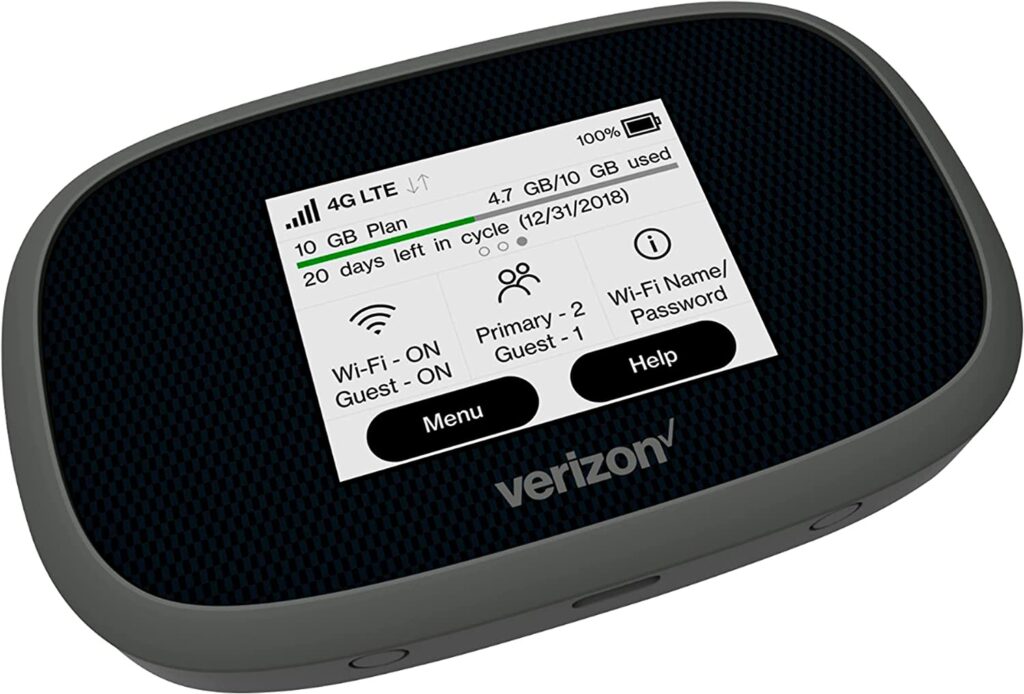
Verizon Jetpack: Verizon has developed a mobile hotspot called a Jetpack, that are compact, portable devices that create a Wi-Fi network and provide internet access via cellular data. They are a popular option for RVers because they are easy to use, provide fast and reliable internet access, and can be used in a variety of locations. Jetpacks are also a good option for RVers who need to connect multiple devices, such as smartphones, laptops, and tablets, to the internet at the same time.
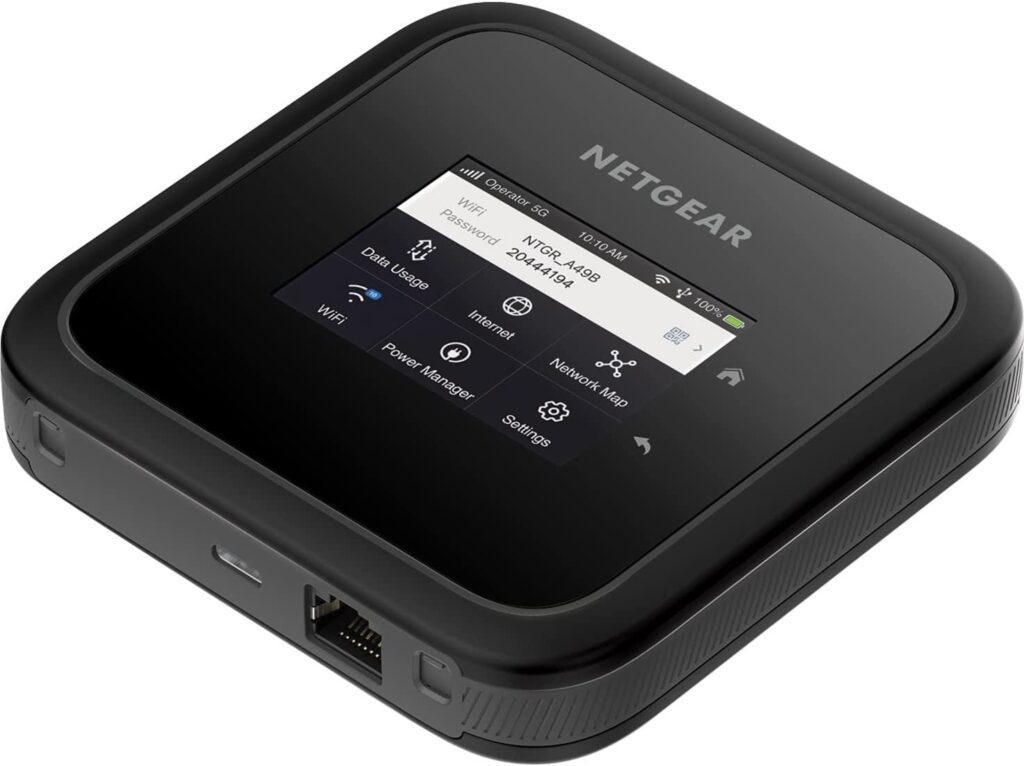
Netgear Nighthawk: is another type of mobile hotspot device that provides fast, reliable internet access via cellular data. They are similar to jetpacks, but they are larger, more powerful, and often have additional features, such as the ability to act as a Wi-Fi range extender and a VPN server. Nighthawks are a good option for RVers who need a more powerful and versatile internet solution and are willing to pay a higher price for these features.
Amplifiying Hotspots with a Cell Booster
Cell boosters can boost the signal for both cell phones and portable hotspot standalone devices by improving the quality of the cell signal that both devices rely on. The cell booster can ensure that both your cell phone and your portable hotspot receive a stronger and more reliable signal, which can result in faster data speeds, fewer dropped calls, and improved overall internet connectivity.
How do cell boosters work exactly?
Cell boosters work by amplifying the weak cellular signals that are present in many remote or rural areas. They receive the weak signal, amplify it, and then broadcast a stronger signal to the device. This can help to improve the quality and speed of the internet connection and provide a more reliable connection for RVers who are traveling in areas with weak or no cell signals.
As previously mentioned, we relied on a cell booster for a couple of years, but it was still necessary to carefully choose camping locations that had adequate cell signal.
choosing a Reliable Cell Booster
There are a variety of cell boosters available in the market, each with its own unique set of features and capabilities.
These boosters can range in price from a few hundred dollars to several thousand, depending on the strength of the signal boost, the area it covers, and the features it offers.
Additionally, some cell boosters are designed for use with specific cell service providers (provider-specific boosters), while others are compatible with multiple providers (broadband signal boosters).
Some popular cell boosters on the market today include:
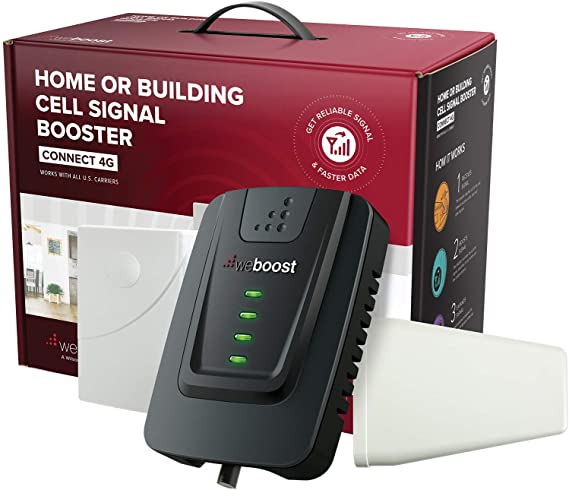
weBoost: weBoost is a well-known brand in the cell booster market, offering a wide range of boosters for various signal-boosting needs. Their boosters are designed to work with all North American carriers and are known for their reliable performance.
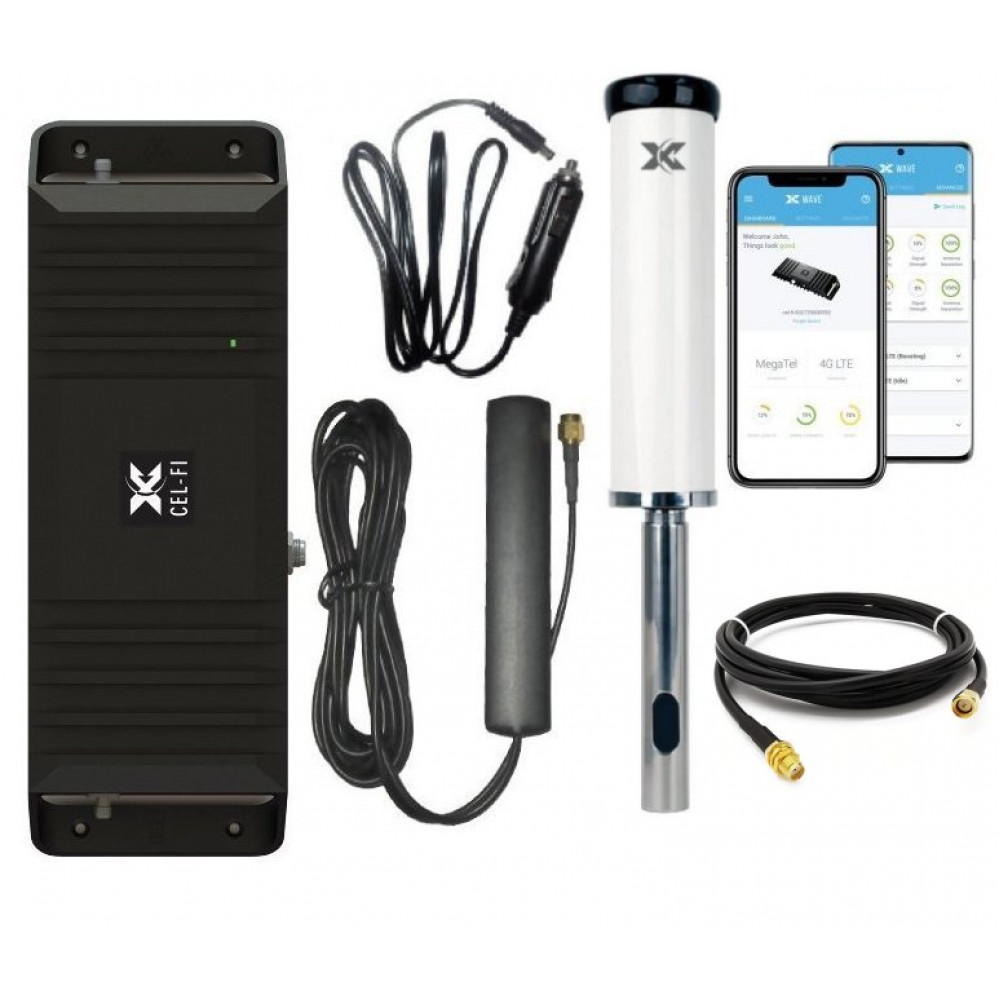
Cel-Fi: The Cel-Fi GO RV Smart Signal Booster is a high-performance, carrier-specific cellular signal booster designed specifically for use in RVs, boats, and other mobile applications. It is designed to enhance cellular signals for a single carrier and supports all of the major US carriers, including AT&T, Verizon, T-Mobile, and Sprint.
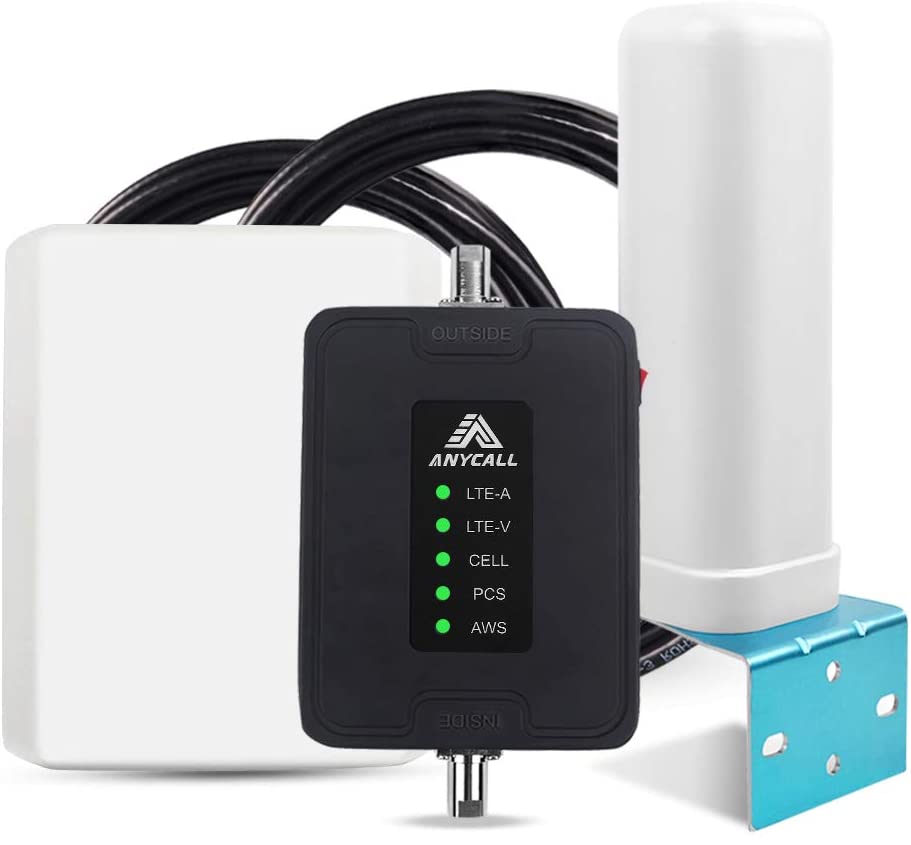
AnyCall: AnyCall is a popular brand in the cell booster market, offering boosters that are known for their good performance and affordability. They offer boosters that are easy to install and can be used in a variety of settings, including homes, offices, and vehicles.
RV Park Wi-Fi
If you plan on staying at an RV park or campground for an extended period of time, then another great option is to take advantage of their wifi service. Many RV parks and campgrounds offer Wi-Fi to their guests, either for free or for a fee. The quality of these Wi-Fi networks can vary greatly, so it’s a good idea to research the Wi-Fi quality at your desired RV park before making a reservation.
Wifi Boosters
A WiFi booster is a device that amplifies the existing WiFi signal to extend the coverage area and improve the internet speed and connectivity for RVers who are stationary.
These boosters work by picking up the existing WiFi signal and amplifying it to provide a stronger and more stable connection for the RVers, regardless of their location.
This can be especially useful for RVers who frequently travel from RV park to RV park and need access to a stable internet connection.
Some popular RV WiFi boosters include the Winegard ConnecT 2.0 and the King OTR (Over-the-Road) WiFi Booster.
Satellite Internet
Satellite internet service, which uses space-based telecommunications to provide coverage is a popular option for RVers who need internet access in remote areas. Services like HughesNet, Viasat, and Starlink provide satellite dishes that can be mounted on an RV, and they offer plans with varying speeds and data allowances.
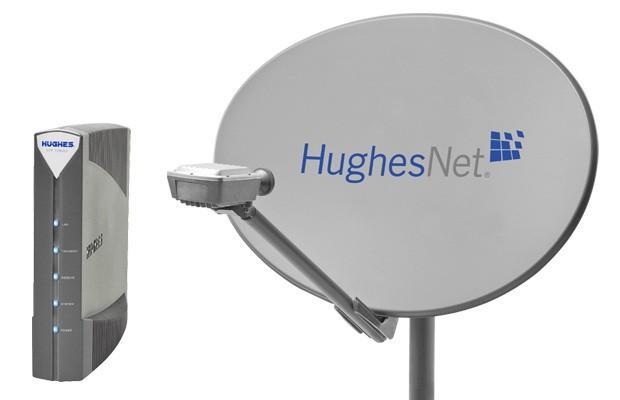
HughesNet: HughesNet is a well-established satellite internet provider with a nationwide coverage in the United States. They offer plans with a range of speeds, but all plans have data caps, which means your speeds will slow down after you reach a certain amount of data usage.
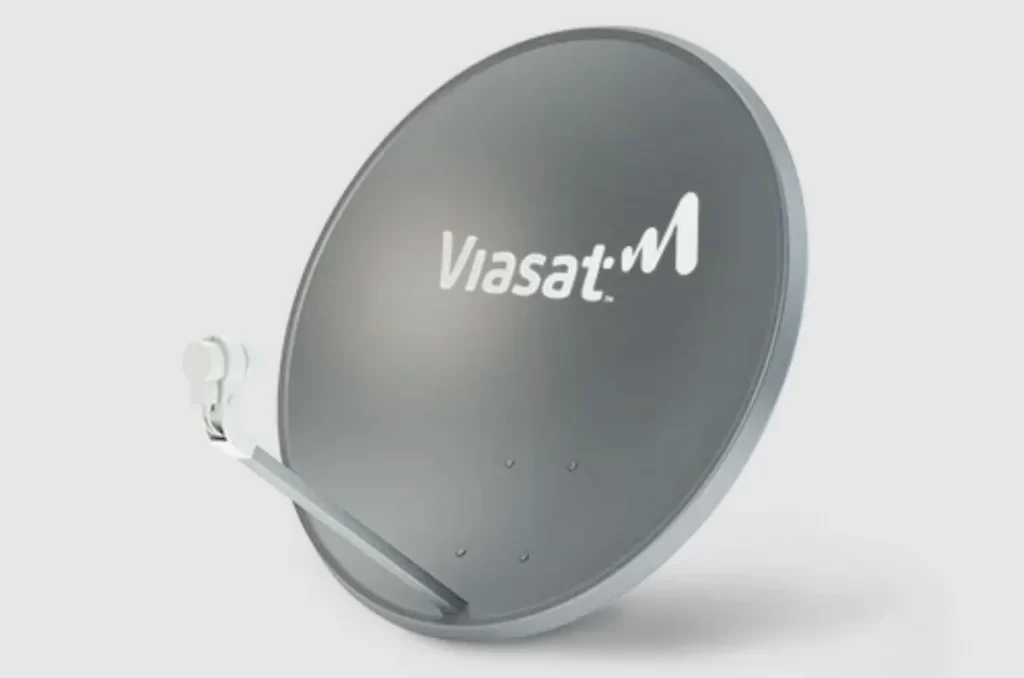
Viasat: Viasat is another nationwide satellite internet provider in the United States. Viasat offers faster speeds compared to HughesNet, but their plans are also more expensive. Viasat plans also have data caps, but the caps are higher compared to HughesNet plans.
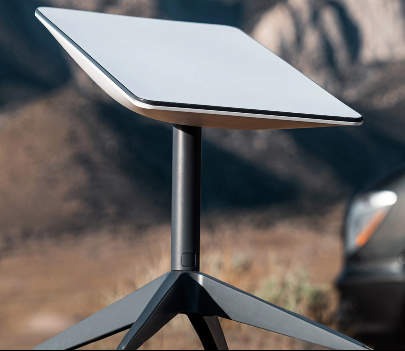
Starlink: Starlink is a new satellite internet provider from SpaceX that offers low latency and high-speed satellite internet. It’s currently available in a limited area, but they plan to have nationwide coverage soon. Unlike HughesNet and Viasat, Starlink does not have data caps, which means you can use as much data as you want without worrying about slower speeds.
Why is Starlink Perfect for RVers?
Of all the options for getting internet as a full-time RVer, we love Starlink the most because of its reliability and affordability. With Starlink, we are able to stay connected no matter where we roam and no matter how remote the location is. This is a major bonus for us since our lives depend on staying connected while we’re out in the middle of nowhere!
Starlink also offers great speeds for streaming, gaming, downloading and uploading. We’ve been able to easily keep up with our work from literally anywhere by relying on Starlink’s reliable connection. Plus, it’s super easy to set up since the service works almost immediately after plugging in all the necessary components. We can usually get started within minutes of being in a new location.
In addition to its fast connection speeds and ease of setup, Starlink also offers incredibly affordable plans at just $99 a month for unlimited data at download speeds up to 100 Mbps and upload speeds up to 20 Mbps. That means that we don’t have to worry about overage charges or sacrificing performance or speed when using the service.
All in all, Starlink provides us with an unbeatable combination of high-performance levels, reliability, and affordability—something that is truly invaluable when traveling in an RV full-time!
Read more: Will Starlink work without cell signal?
What Internet is right for your RV as a full-time RVer?
When deciding on what internet is right for your RV as a full-time RVer, there are several questions you should ask yourself to determine the best option for your lifestyle and needs. Here are some of these questions:
1. What is your budget for internet?
Cost is likely to be a major consideration, as some internet options can be quite expensive. It’s important to find a solution that fits within your budget and offers the speed and reliability you need.
2. How much data do you typically use in a month?
The amount of data you use can also have an impact on which type of internet you choose. Some plans have data limits that may be too restrictive for some users, while others offer unlimited data. If you use a lot of data, it’s important to find a plan that won’t limit your usage or incur overage fees.
3. How do you plan to use the internet?
Do you need fast and reliable internet for work, or just basic internet for browsing and social media? How many devices will you need to connect at once? These are all important questions to answer as you determine which type of internet will best meet your needs.
4. How often do you plan on boondocking?
If you plan to boondock frequently, it’s important to choose a type of internet that is designed to work in remote locations without a strong signal. Satellite internet may be more suitable in these cases.
5. Do you prefer one or multiple ways to access the internet?
Having multiple options for internet access can provide more reliability and flexibility, but it may also increase the cost and complexity of the system.
How Full-Time RVers Get Internet Final Thoughts
Having reliable internet is an essential aspect for many digital nomads and RV enthusiasts who need to stay connected on the road. With so many options available, it’s important to consider your internet usage needs, budget, and frequency of camping in remote locations to determine which option is best for you.
Whether it’s a cellular data plan, a portable hotspot, or a satellite internet system, it’s important to make an informed decision so that you can stay connected and enjoy your travels to the fullest. We hope this blog post has helped you understand the different options and their limitations so that you’ll be able to make a decision that ensures you have a reliable and affordable internet connection while you full-time RV.
Check out our RV Resources for a wealth of helpful guides on RV living, including tips and tricks to simplify RV ownership.


